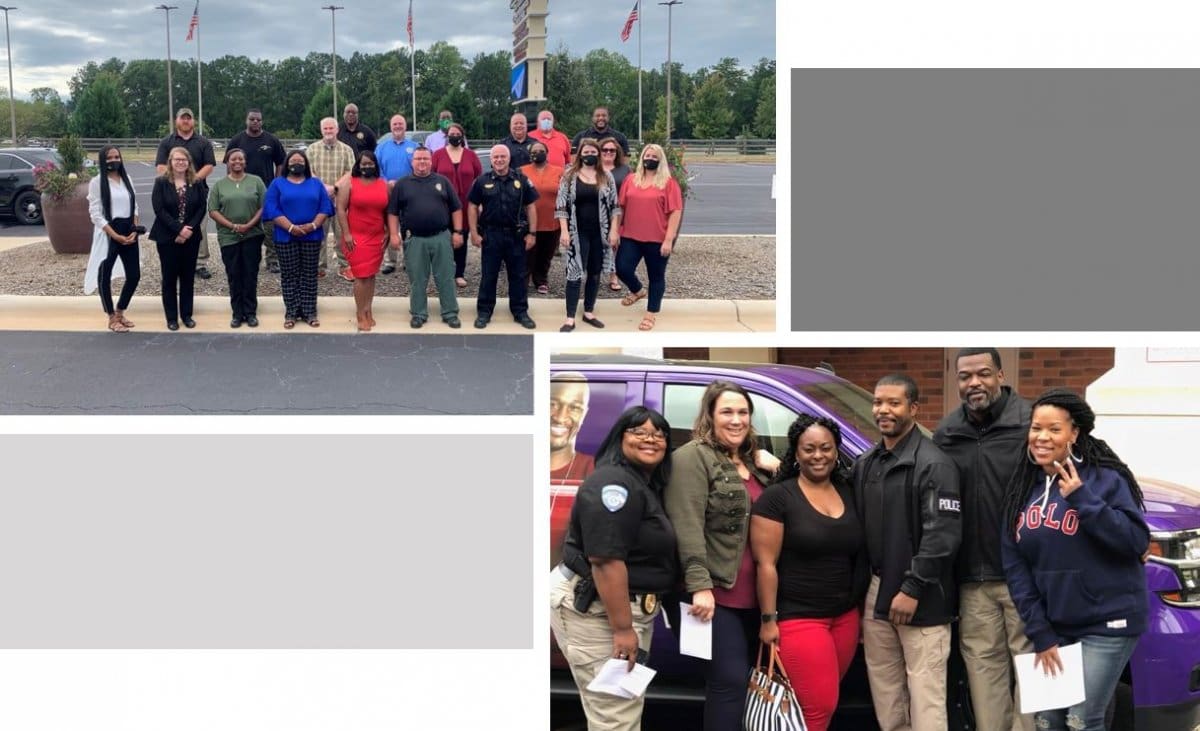
“The Chester County ECHO Coalition, of Chester County, South Carolina, was formed in October 2015, after the South Carolina Highway Patrol released a report stating that Chester County was among the top five counties in the state with the highest percentage of alcohol-related traffic fatalities,” said the coalition’s Director of Prevention Services Melody Reid. “With 40 traffic fatalities in 2015 alone, it was evident that Chester County was a high priority area. The coalition was awarded a Partnership for Success (PFS) grant and decided that the focus of the coalition would be to address prevention issues related to impaired driving for youth ages 12-25.”
“In 2018, the ECHO Coalition created a Youth Advisory Board (YAB) at all three local high schools to include the youth sector in the planning and implementation of coalition activities,” said Reid. “In 2019, the coalition decided that there was the need to expand its focus from underage drinking and impaired driving to other substances. In September 2019, the ECHO Coalition was again awarded the PFS grant to focus on marijuana, tobacco and alcohol use among youth ages 9-20 in Chester County. One month later the coalition was awarded the Drug-Free Communities grant, which would focus on marijuana and alcohol use among youth under the age of 18 in Chester County.”
“We had to alter our action plan this year,” said Reid. “We had several events planned that had to be cancelled due to COVID-19 and our monthly meetings had to be conducted through Zoom. We did not let that stop us from meeting with our Executive Committee members or our YAB. We continued to meet with our youth every two weeks to come up with innovative ways to keep their peers engaged in prevention activities and messages. Our coalition members continued to volunteer their time and efforts to the coalition, despite not being face-to-face with our members and the community.”
“To continue youth engagement during COVID-19, we hosted the Above the Influence Photo Competition this year,” said Reid. “This challenge was open to any 6-12th grader in the district. Students were asked to take of photo of an activity that keeps them alcohol and drug free. Students who submitted a picture were entered into a contest and winners received an incentive. All entries were publicized on the coalition’s social media pages.”
“In addition, our YAB members created a TikTok Challenge, where students created TikTok videos with a prevention message surrounding substance misuse or COVID-19,” said Reid. “Students competed for the most likes/views. The top 10 videos at each school that got the most views received a $30 gift card. YAB members were responsible for recruiting students to participate in the challenge using social media and word of mouth marketing. This project was held throughout the summer during the COVID-19 pandemic. Students were encouraged to use props such as posters with messages written on them about alcohol, marijuana, vaping, tobacco and prescription drugs.”
“As a result of our coalition’s efforts, past 30-day cigarette, marijuana and prescription drug use rates are down for 6-12th grade students in Chester County since 2018,” said Reid. “In addition, perception of risk for cigarettes, marijuana and prescription drugs is up and perception of both peer and parental disapproval for cigarettes, alcohol marijuana and prescription drugs is up as well.”
“Our advice to other coalitions is to keep the communication fluid with your members,” said Reid. “Don’t miss the opportunity to interact with each other due to the COVID-19 pandemic. Continue to interact with each other and modify planned activities to accommodate social distancing regulations. Utilize web-based platforms to continue to meet on a monthly basis. Think outside the box from your normal scope, or traditional methods of programs and activities. Also, create a toolkit of information for members to use and have access to when they need information to give other community members about your coalition.”
“We will be attending CADCA’s Virtual National Leadership Forum this February,” said Reid. “We are continuously looking for innovative ways to deliver prevention messages to our community. We are hoping to find ideas that we can take back to our coalition, which other states are implementing that have been proven to be successful in their respective communities. We also hope to further our knowledge in the latest alcohol and drug trends seen throughout the country in order to prepare ourselves for what may come. CADCA always provides the opportunity to enhance our coalition leadership skills and bridge the gap between services. We always look forward to this conference and the opportunity to expand our skills in the prevention field through trainings led by our peers and expert speakers throughout the country.”

